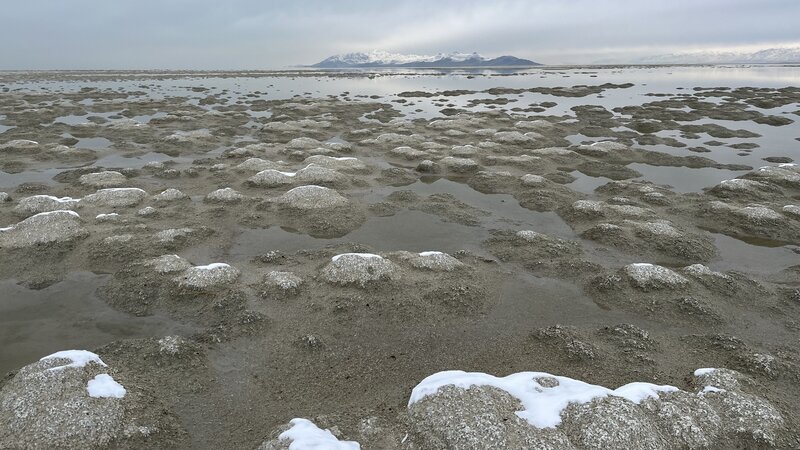https://www.npr.org/2023/02/03/ [login to see] /climate-change-and-a-population-boom-could-dry-up-the-great-salt-lake-in-5-years
Trekking along the shoreline of the Great Salt Lake — the largest remaining saltwater lake in the western hemisphere — can feel eerie and lonely.
"These might even be my footprints from last week," says Carly Biedul, pointing to indents in the mud. Biedul is a biologist with the Great Salt Lake Institute. She's bundled up in an orange puffy jacket, gloves and hat. Most important she's wearing thick, sturdy, rubber boots.
The mud with a frozen, slick layer of ice on top gets treacherous. One thing that's hard to prepare for though, is the stench: a pungent odor like sulfur and dead fish. But it's actually a good thing, a sign of a biologically healthy saline lake.
"People have been saying that they miss the lake stink because it just makes them feel like home," Biedul says. "It's just not here [much] anymore, so you're lucky that it gets to smell so bad."
Lucky? Maybe one small bright spot in an otherwise grim story of a looming ecological disaster. The lake doesn't really stink anymore because it's drying ... and dying.



 Climate Change
Climate Change Science
Science Salt Lake City
Salt Lake City Brigham Young University
Brigham Young University Environment
Environment



